You get in the journal…we get you on the cover!
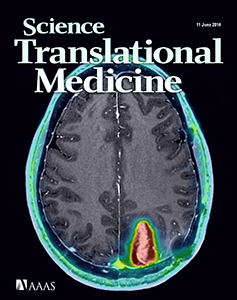 |
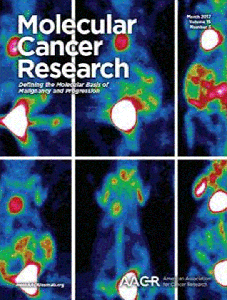 |
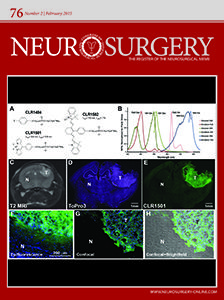 |
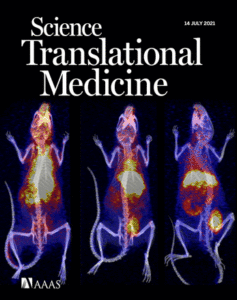 |
Mission
University of Wisconsin-Madison Small Animal Imaging and Radiotherapy Facility (SAIRF) is a comprehensive core facility within the University of Wisconsin Carbone Cancer Center (UWCCC). We are dedicated to providing innovative, state-of-the-art, affordable, noninvasive, high-resolution, in-vivo and ex-vivo imaging and radiotherapy support to UWCCC investigators, University of Wisconsin researchers, and industry.
More about SAIRF
SAIRF Workflow
This is an accordion element with a series of buttons that open and close related content panels.
1. Consultation with Study Design
- Request consultation: Contact SAIRF Staff, or initiate a request using the Request Services page in iLab
- Discuss logistics with SAIRF staff: animal protocols, housing, injection techniques, number of animals, time points, image resolution, tissue collection, contrast agents and modalities
- For full-service imaging studies, scheduling can occur any time after initial consultation. Contact SAIRF Staff to coordinate full-service scheduling
2. Animal Protocols and Housing
- Complete the Animal Transfer Form (pdf opens in new tab) one week prior to imaging. Transfer to SAIRF Umbrella Imaging Protocol (M005532; PI: Jamey Weichert; Rm: WIMR, B1334C). If needed, PIs can amend their protocol to include imaging procedures, SAIRF staff and room numbers
- To comply with BioSafety communication standards, please fill out a Biohazard Intake Form as well
- After approval, physically transport animals to B1334C housing
- More information about animal housing in the SAIRF
3. Facility Access (only required for self-service)
- General facility training (~30min session): Animal housing, PPE, radioactive and biohazard handling and disposal, etc. Additional equipment training is available upon request. Contact SAIRF Staff to schedule training
- Send your full name and the 6-digit number on the back of your WisCard to the SAIRF Staff email to request key card access to the facility
4. Scheduling
- For full-service, contact SAIRF Staff to coordinate scheduling
- For self-service, after steps 1 through 3 are completed, schedule equipment directly in iLab.
- Help with iLab
5. Imaging/Data Acquisition & Radiotherapy
- Self-Service (users trained by SAIRF staff) or Full-service equipment:
- Optical Imaging – fluorescence, bioluminescence, or near-infrared (IVIS, Fluobeam)
- Animal and Cell Irradiators (Xstrahl CIX3, Xstrahl RS-225)
- X-Ray & DXA Imaging (Faxitron)
- Hematology Systems (HM5 and VS2)
- Full-Service Equipment (operated by SAIRF staff only)
- PET or PET/CT imaging (Inveon)
- SPECT/CT (MILabs U-SPECT6CTUHR)
- Ultrasound/Photoacoustic imaging (VevoLAZR 2100)
- Targeted Animal Irradiator (Xstrahl SARRP)
- MRI Requests: contact Beth Rauch directly
6. Data Storage and Analysis
- Data is automatically backed up to UW’s ResearchDrive
- Contact SAIRF Staff to schedule analysis training
- Reserve 1 of 4, free-of-charge analysis workstations in iLab
7. Manuscript and Presentation Preparation
- The SAIRF can assist preparing images and videos, writing methods, as well as proposals/grant applications free of charge.
-
Acknowledging SAIRF & NIH S10 SIG Equipment
If you used the SAIRF services and/or equipment, you are responsible for acknowledging the SAIRF in publications, posters and presentations. If you used equipment that was funded by the NIH via S10 Shared Instrumentation Grant (SIG), then you must acknowledge the NIH S10 grant. For example, “The authors would like to acknowledge the Cancer Center Support Grant: NCI P30 CA014520, University of Wisconsin Small Animal Imaging & Radiotherapy Facility and [insert one of the following NIH S10 Shared Instrumentation Grants] for supporting this work.”
-MiLabs microSPECT/CT SIG: NIH S10OD028670-01
-Faxitron Digital X-Ray SIG: NIH S10OD023676-01
-VisualSonics US/PA SIG: NIH S10-OD018505For more information, including instructions for retroactively adding acknowledgements, see Acknowledging CCSG, SAIRF and NIH S10 Instrumentation Grants.
Acknowledging UWCCC
If you reside in UWCCC space, receive UWCCC Cancer Center Support Grant (CCSG) funding, or use any UWCCC shared resource, you are responsible for acknowledging the “University of Wisconsin Carbone Cancer Center Support Grant P30 CA014520” in publications, posters and presentations. For more information, see Acknowledging UWCCC Policies.
Contact Us – SAIRF@uwcarbone.wisc.edu
Faculty Leader: Jamey P. Weichert
Facility Managers: Ashley Weichmann & Jenna Steiner
Lab: 608-263-0959
Images and Videos
The Small Animal Imaging and Radiotherapy Facility is an award-winning facility, with four "Image of the Year" wins and honorable mentions since 2006.
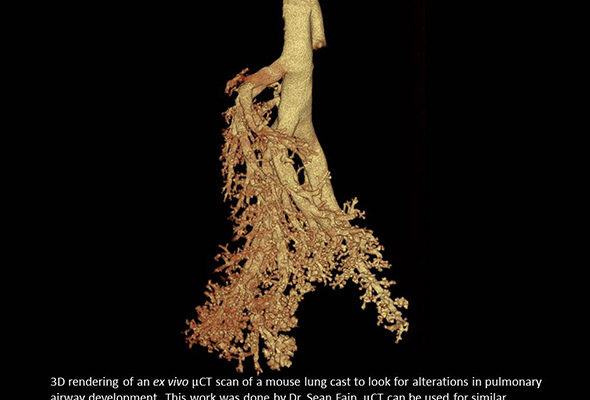
News from SAIRF
New Equipment Announcement – Mediso nanoScan uPET/CT and NeoScan N80 Ex Vivo uCT
The Small Animal Imaging and Radiotherapy Facility (SAIRF) is pleased to announce the addition of two major pieces of instrumentation to enhance research capabilities: the Mediso nanoScan micro Positron Emission Tomography/Computed Tomography (uPET/CT) and the …
December 3, 2025New Addition to the Small Animal Imaging and Radiotherapy Facility Team
The Small Animal Imaging and Radiotherapy Facility (SAIRF) is excited to welcome Jenna Steiner as the newest member of our team! Jenna is a Certified Veterinary Technologist (CVT) who brings over 17 years of technical expertise and preclinical imaging …
December 3, 2025New Equipment Announcement – Ultra High-Resolution SPECT/CT
The Small Animal Imaging & Radiotherapy Facility (SAIRF) was successfully awarded an NIH Shared Instrumentation Grant (SIG) S10 for an MILabs U-SPECT/CTUHR (ultra high-resolution) system. This system was installed in November, 2020 and is fully operational. This …
December 14, 2021
SAIRF Resources
Services
We scan animals up to ~500 grams, including primates, rabbits, reptiles, birds, gerbils, rats, mice, and other rodents. We also scan inanimate objects for investigators in the material science and biomedical engineering fields.
Publications & Awards
Our experience in analyzing and interpreting imaging data as well as preparing manuscripts and presentations helps us train users to conduct image analysis. Additionally we can help with manuscript writing and image and data presentation. We assist in writing imaging methods, or in generating eye-catching images and videos.